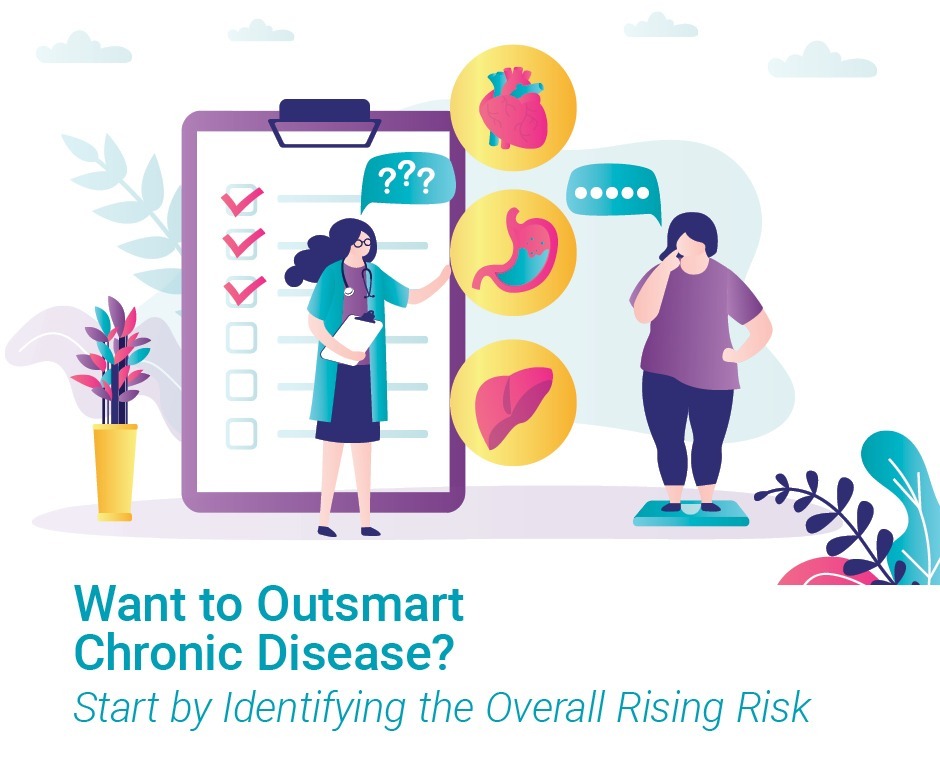In an average day, how many questions do you ask?
Ranging from the rhetorical to funny to serious, we all ask a wide range of questions. When it comes to providing the best patient-centered care we can, asking questions is one area where both providers and doctors can improve.
A long-term patient-care plan can come up short. This leaves both patient and Doctor frustrated. To get ahead in a value-based care environment, organizations need access to a new type of insight into their populations: one that allows them to augment their clinical decisions with the attitudinal and behavioral factors that drive patient decision-making. This starts with simply asking the right types of questions.
Developing a short-term treatment plan? Ask questions. Developing a long-term treatment plan? Ask questions. Working to prevent illnesses by identifying individuals with discoverable rising-risks as early as possible? Ask questions.
Asking questions and listening for answers is the key to making progress against the rising tide of chronic disease. When we take the time to understand the how, when, and why of a patient’s overall current and past health histories, we can progress in providing help with all medical issues and perhaps even develop relationships with other medical providers who will respect input to their patient’s overall health and wellness.
It is critical in today’s fast-paced world that we pause to reflect and hear through all the noise. There are so many factors that are clamoring for our attention when we are treating patients. We must consider everything from genetics and socioeconomic factors to an individual’s behaviors and attitudes towards their overall treatment plan and willingness to adhere to that plan.
When you ask questions, data starts to appear. We must learn how to navigate beyond that data which is unusable to that which generates actionable insights. What we need is much more focused data. With focused data, we can drill down even further to the information that is actionable.
There are no two ways about it: Collecting good clinical data is the key to how you collaborate with your patients. It allows a patient to understand an issue is not limited to caries or periodontal but connects to their overall body. Medical issues such as diabetes may be indicated and need further diagnosis, since treatment is a medical necessity.
Patients have become aware of the power of “transmission,” thanks to Covid. Covid has also created new health issues beyond those of the virus itself. For example, we are dealing with ”mask mouth issues,” since wearing a mask for so many hours dries the oral cavity and causes decay and periodontal issues. This condition requires more products, both used in the office and sold for home care. Letting patients know you can teach them how to use and work with oral health products at home will help them control the transmission of all oral infections. Remind them home care is the number one place they can have control over any illness that needs constant care.
Doing a health risk assessment can be challenging, especially if it involves a patient devoting an hour or two to filling out forms. Many providers have started using teledentistry to collaborate with patients; they report their ability to collect information has been amazing. In some cases, this has facilitated collaborations between dental and other medical providers, providing patients with exceptional trust in the advice given and recommendations provided.
Take the time to ask questions, and involve patients in their treatment plans. Truly listen for answers. This helps establish various benchmarks for treatment. This allows us to deliver not only better plans but allows us to serve the patient more ethically as well. The more engaged a patient is, the better the overall treatment.
Take time to listen to the signals your patient is giving you. Once you get their answers, developing a treatment plan is easier and much more enjoyable. And, of course, the treatment plan is more effective.

Christine Taxin is the founder and president of Links2Success, a practice management consulting company to the dental and medical fields. With over 25 years of experience as a practice management professional, she now provides private practice consulting services, delivers continuing education seminars for dental and medical professionals, and serves as an adjunct professor at the New York University (NYU) Dental School and Resident Programs for Maimonides Hospital.
FMI: www.links2success.biz or 914-303-6464
Read more from Christine Taxin:

